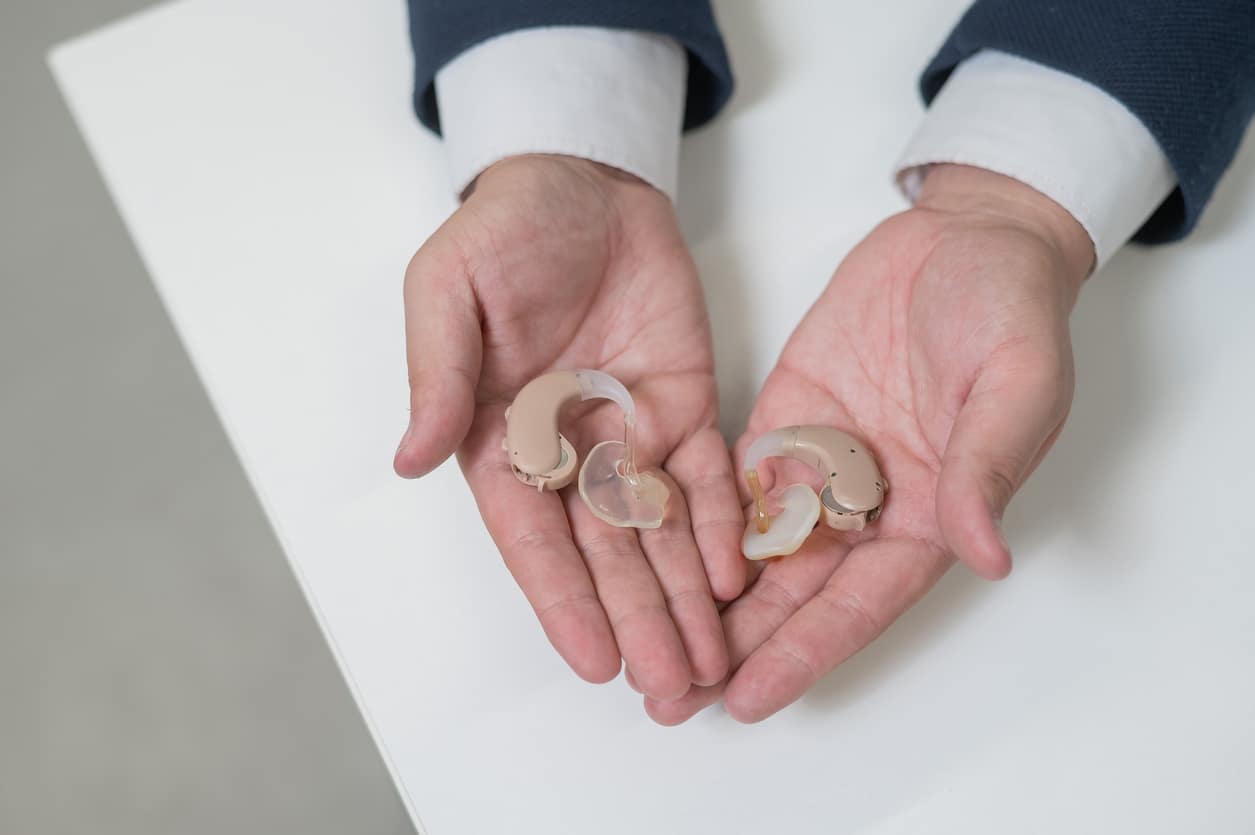If you’re among the 15% of U.S. adults with hearing loss, you know how essential hearing aids are to your daily life. Losing your hearing aids can be overwhelming. While it’s easy to feel panicked, there are practical steps you can take to locate them—and get back to hearing life’s details.
Stay Calm and Search Nearby

Before diving into a full-scale search, pause and take a moment to breathe. Hearing aids are small and often slip into surprising spots. Start by scanning your immediate area, paying close attention to:
- Under furniture like tables or beds
- Inside bags, purses or jacket pockets
- Between couch cushions
- On the ground near your feet
- Near surfaces where you’ve been, like desks or counters
Think about the places you typically set down other everyday items, like your keys or glasses. If you’ve been out and about, mentally backtrack your movements. Did you take them off in your car, during dinner at The Vault Restaurant or while visiting a friend? Think hard about your movements before panicking.
Get Help from Others
Sometimes, a fresh pair of eyes is all you need. Let family, friends or roommates know you’re searching for your hearing aids. If you were out with others, give them a quick call to ask if they noticed your devices or remember where you last had them.
Leverage Technology
Many modern hearing aids come with helpful tracking features via smartphone apps. If your hearing aids are connected to an app, check their location using the “find my devices” feature. The feature’s name may change based on your app, so check your manual if you can’t find it.
Take Steps to Prevent Future Loss
Once you’ve recovered or replaced your hearing aids, consider these proactive measures to prevent future loss:
- Invest in a hearing aid case. Always store your devices in a dedicated case when not in use.
- Use a tracker. Attach a small tracker to your case to locate it quickly if misplaced. This is a good backup option if your hearing aids don’t have a “find my device” feature.
- Create a routine. Designate a consistent spot to store your hearing aids, like a bedside table or drawer. Avoid removing your devices in public areas.
Hearing aids are essential tools that keep you connected to the world around you. If you can’t find your devices after following the above tips, contact Eastern Oklahoma Ear Nose and Throat – Yale Office to discuss replacement options.